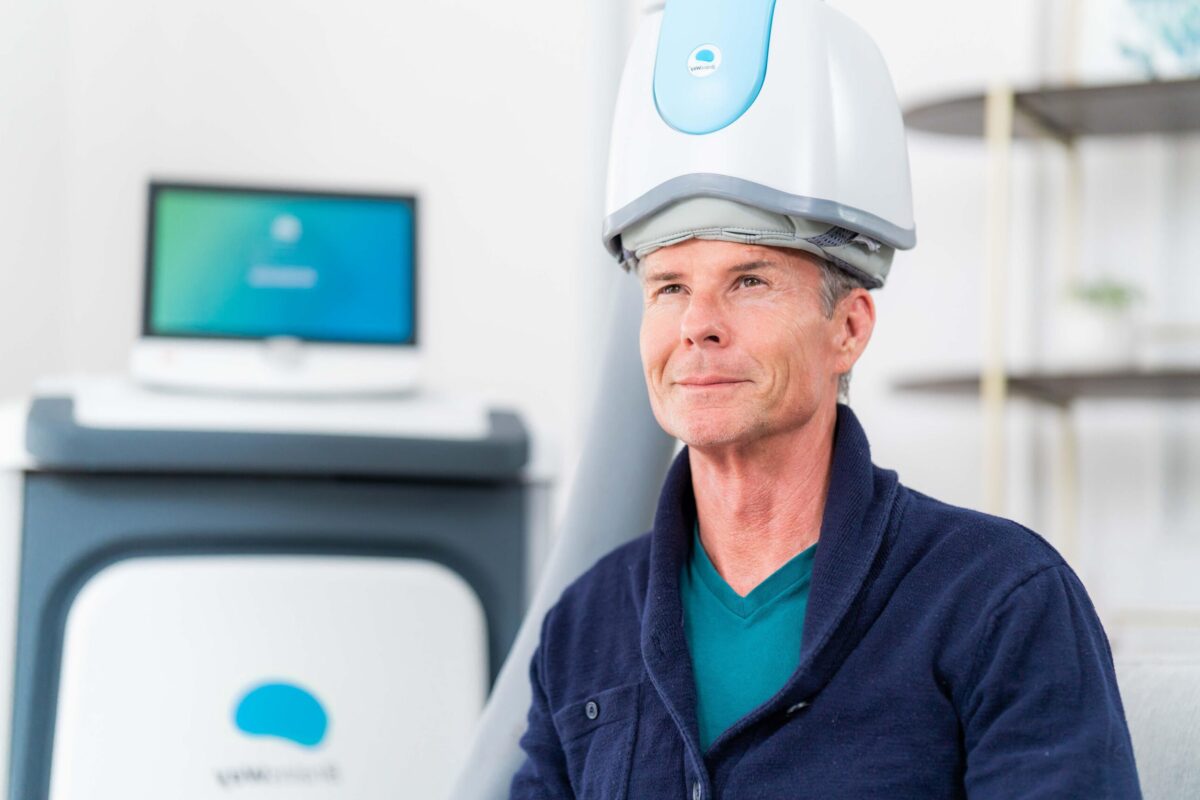At Axon Integrative Health, we understand the complexity of the human brain and how it impacts every aspect of your well-being. Functional neurology is a holistic and science-backed approach to addressing neurological issues by focusing on the brain’s capacity to heal, adapt, and function at its best. Whether you’re dealing with chronic pain, concussions, or neurodegenerative conditions, functional neurology provides a dynamic path to recovery by emphasizing personalized care and root-cause solutions.
What is Functional Neurology?
Functional neurology focuses on optimizing brain function by assessing and treating neurological disorders through non-invasive, personalized methods. It combines cutting-edge neurological principles with functional medicine, which looks at the body as a whole, emphasizing how different systems interact and affect overall health.
Unlike conventional neurology, which often focuses on diagnosing and treating symptoms, functional neurology goes deeper into the connections between the brain and the body. The goal is to identify dysfunctions in the nervous system and work to restore them, whether they stem from trauma, disease, or lifestyle factors.
How Does Functional Neurology Work?
Functional neurology operates on the principle of neuroplasticity—the brain’s remarkable ability to change and rewire itself in response to stimulation. Neuroplasticity allows the brain to adapt and form new neural connections even after injury or degeneration. Functional neurologists harness this adaptability through targeted therapies designed to stimulate specific areas of the brain, helping it regain function and restore balance.
Here are the core aspects of functional neurology:
- Comprehensive Assessments: Functional neurologists use advanced diagnostic tools to assess brain function, balance, coordination, and cognitive abilities. This could include qEEG brain mapping, balance testing, eye movement evaluations, and other neurological exams to get a full picture of brain activity and identify problem areas.
- Non-Invasive Therapies: Once dysfunctions are identified, treatments such as sensory exercises, vestibular rehabilitation, eye movement therapy, and neurofeedback are used to stimulate the brain. These therapies activate areas that are underperforming, facilitating healing and restoring function.
- Customized Care Plans: Every brain is unique, and functional neurology emphasizes personalized treatment. Care plans are designed to address the specific neurological deficits that are uncovered during the assessment process, whether they are related to injury, disease, or neurological decline.
The Conditions Functional Neurology Can Help
Functional neurology has proven effective in addressing a variety of neurological conditions. Whether you’re dealing with an acute injury or a chronic condition, it offers alternative treatment solutions that focus on healing rather than symptom management.
Concussions and Traumatic Brain Injuries (TBI)
One of the most common uses of functional neurology is in treating concussions and TBIs. These injuries can have lasting effects on cognitive function, balance, coordination, and mood. Functional neurology provides targeted brain exercises to improve neuroplasticity and restore function. Through neurofeedback, eye movement therapy, and vestibular training, individuals can experience recovery from symptoms like brain fog, dizziness, headaches, and difficulty concentrating.
Chronic Pain and Migraines
Many people with chronic pain, particularly those who suffer from migraines, experience dysfunction in how the brain processes pain signals. Functional neurologists focus on retraining the brain to process these signals more effectively, helping reduce the intensity and frequency of migraines and other forms of chronic pain.
Neurodegenerative Diseases
For those dealing with neurodegenerative diseases such as Alzheimer’s, Parkinson’s, or Multiple Sclerosis (MS), functional neurology offers promising strategies. While these conditions cannot be reversed, functional neurology focuses on slowing down their progression and improving the quality of life through cognitive stimulation and physical therapies designed to enhance brain function.
Balance and Dizziness Disorders
Vertigo, balance issues, and dizziness are often linked to the brain’s vestibular system. Functional neurology helps to retrain this system through balance exercises, sensory training, and vestibular rehabilitation. Patients with disorders such as Meniere’s disease or chronic dizziness can benefit from these specialized therapies.
ADHD and Learning Disorders
Functional neurology can also support children and adults with ADHD or other learning disorders by addressing neurological imbalances. Brain exercises that focus on improving attention, executive function, and cognitive processing help individuals gain better focus and reduce symptoms associated with ADHD.
The Role of qEEG and Neurofeedback in Functional Neurology
One of the most exciting advancements in functional neurology is the use of qEEG (quantitative electroencephalogram) brain mapping and neurofeedback therapy. qEEG provides a detailed map of brainwave activity, pinpointing areas of dysfunction or imbalance. By identifying abnormal brainwave patterns, functional neurologists can tailor treatments to stimulate or calm specific areas of the brain.
Neurofeedback, which is often used in conjunction with qEEG, helps patients retrain their brain activity by providing real-time feedback. During neurofeedback sessions, patients perform specific mental tasks while being monitored by qEEG, and the brain gradually learns to produce healthier brainwave patterns. This is especially helpful for conditions like anxiety, depression, PTSD, ADHD, and even chronic pain.
The Connection Between Brain Health and Overall Wellness
Functional neurology highlights the important connection between brain health and overall wellness. The brain regulates every system in the body, from digestion and metabolism to movement and mood. When the brain isn’t functioning properly, it can lead to a cascade of health issues, including hormonal imbalances, sleep disorders, and immune dysfunction.
At Axon Integrative Health, we take an integrative approach, combining functional neurology with other holistic therapies, such as metabolic regulation, IV therapy, and nutritional support. This comprehensive care ensures that we address not just the neurological issue but also the underlying health factors contributing to it.
Why Choose Functional Neurology?
Functional neurology offers an innovative, non-invasive way to approach neurological issues by focusing on the brain’s innate ability to heal itself. Whether you’re recovering from an injury or dealing with a chronic neurological condition, this personalized, root-cause approach can transform your healing journey.
At Axon Integrative Health, we believe in empowering our patients with the tools and treatments necessary for optimal brain health. Our functional neurology program provides a path to improved cognitive function, physical well-being, and long-term neurological health.
Ready to Transform Your Brain Health?
If you’re ready to explore the benefits of functional neurology, we’re here to help. Our experienced team in Cherry Creek is dedicated to helping you restore and optimize your brain’s performance using the latest science and a compassionate, patient-centered approach. Contact Axon Integrative Health today to learn more about our functional neurology services and how they can help you live a healthier, more vibrant life.





